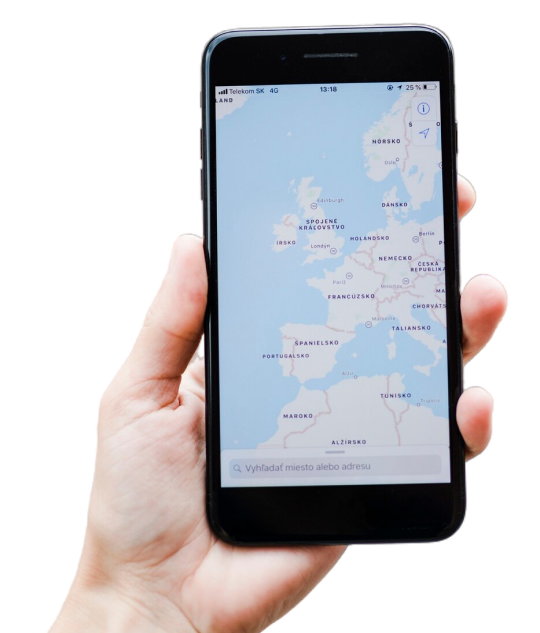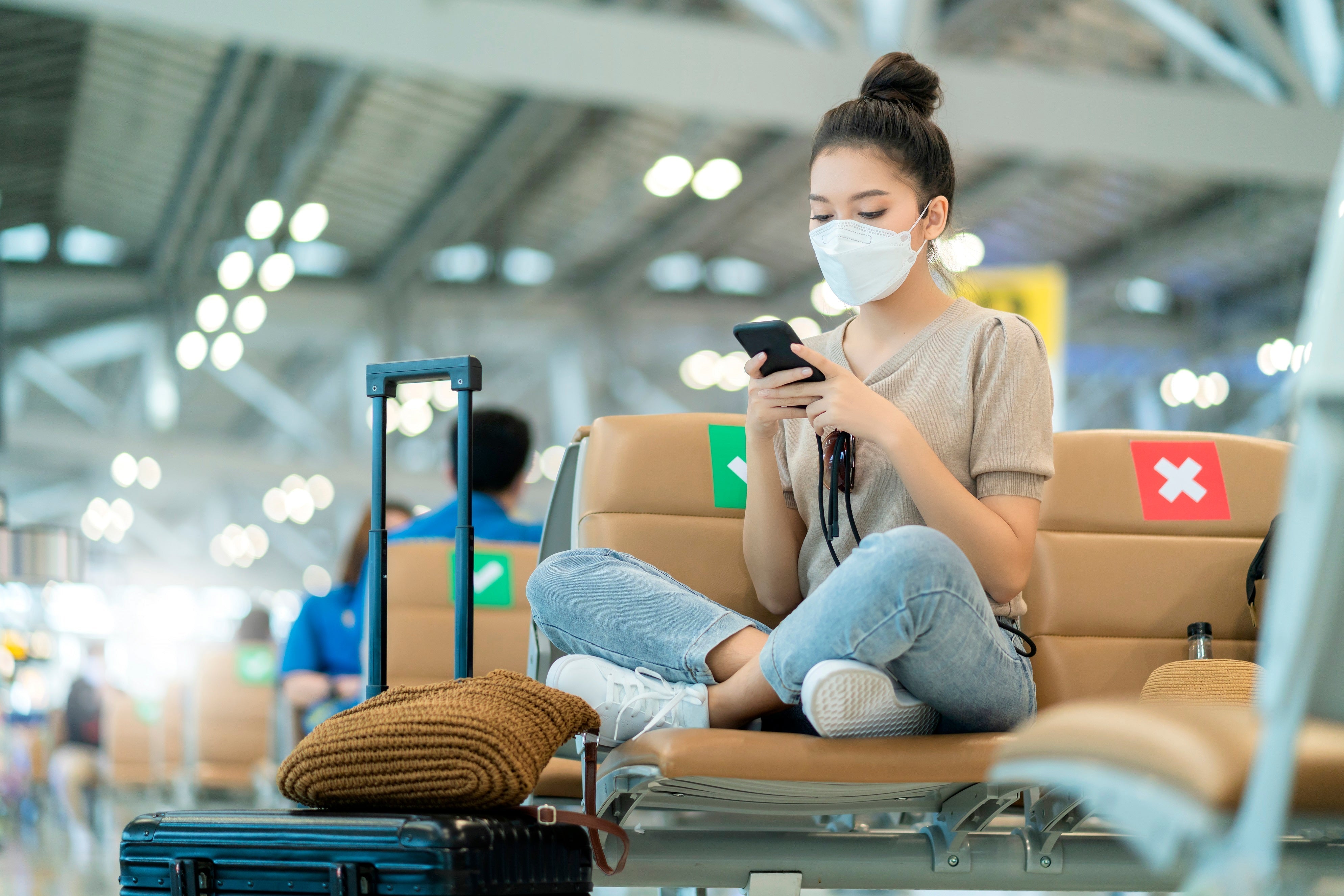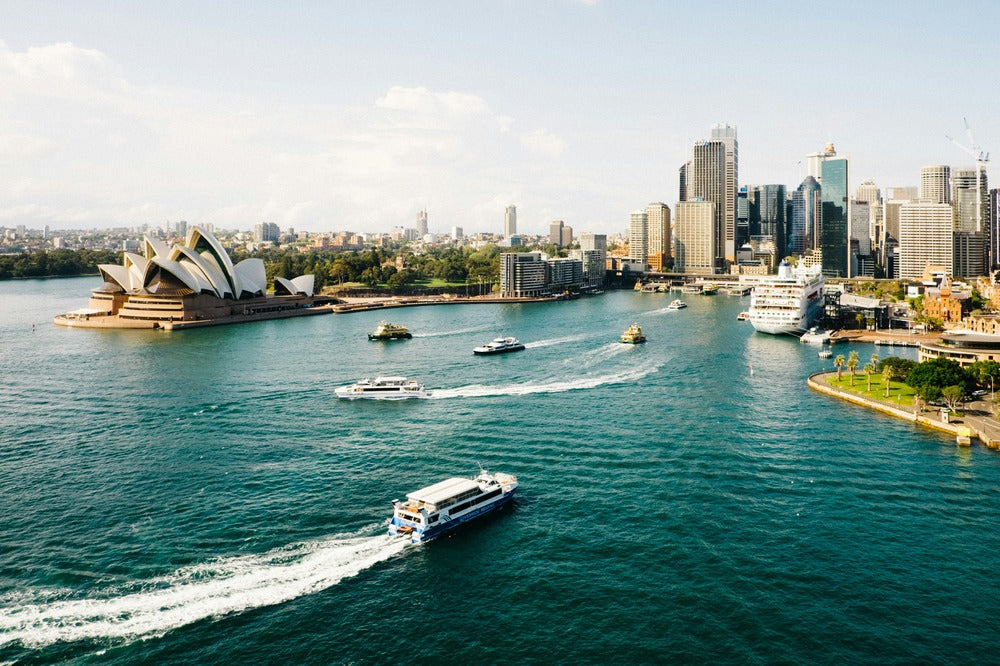
Travelling to China soon??
So, you’ve finally pulled the trigger. The tickets are booked. You’re going to the Middle Kingdom!
First off, congratulations. China is, without a doubt, one of the most mind-bending, visually stunning, and historically rich places I have ever visited. One minute you are walking along the Bund in Shanghai looking at a skyline that makes Cyberpunk 2077 look tame, and the next you are hiking a remote section of the Great Wall that hasn't changed in centuries. It’s a place of extreme contrasts.
But let’s be real for a second—it’s also one of the most intimidating places to travel.
When I first started planning my trip, I was overwhelmed. I heard horror stories about the language barrier, the payment systems, and, of course, the dreaded "Great Firewall" of China. I was worried I’d be stranded without Google Maps, unable to buy a bottle of water because I didn’t have the right app, and unable to post my cool photos to Instagram.
If you are feeling that pre-trip anxiety, take a deep breath. I’ve been there, I’ve made the mistakes, and I’m here to tell you exactly how to navigate the chaos.
In this guide, I’m going to walk you through the things I wish I knew before I landed. From dodging internet blocks with eSIM4u to mastering the art of the squat toilet, here is your survival guide.
1. The "Great Firewall" is Real (and How to Beat It)
Let’s rip the band-aid off immediately. When you land in China and turn off airplane mode, your digital life as you know it stops existing. Google? Blocked. Instagram? Gone. Facebook, WhatsApp, YouTube? All inaccessible.
The Chinese internet is a walled garden. For a traveler, this is terrifying. You don’t realize how much you rely on Google Maps or Gmail until they simply don't load.
On my last trip, I saw tourists at the airport frantically trying to connect to the airport WiFi, only to realize they couldn't even check their email to find their hotel address. Don't be that person.
The Solution: You need a reliable way to tunnel through the firewall. While many people suggest VPNs (Virtual Private Networks), they can be hit-or-miss. The Chinese government actively hunts down and blocks VPN servers. I spent half a day in Beijing once just trying to find a server that worked so I could send an email.
This time around, I switched tactics. I used an eSIM. specifically, I picked one up from eSIM4u.
Using eSIM4u was a total game-changer. Because it’s a roaming eSIM, the data is routed through servers outside of China. This means when you land, you aren't technically "inside" the firewall restrictions in the same way. My Instagram, Gmail, and WhatsApp worked instantly without me having to toggle a VPN on and off constantly. Plus, eSIM4u is an online eSIM online store, so I didn't have to deal with finding a physical kiosk at the airport where no one spoke English. I just scanned a QR code before I left home, and boom—instant data upon landing.
2. Cash is Trash (But Bring Some Anyway)
China is living in the year 3000 when it comes to payments. I am not exaggerating when I say I saw a street busker playing a violin with a QR code printed on a piece of cardboard for tips. I saw a grandmother buying a single sweet potato from a street cart using her face ID.
Credit cards (Visa/Mastercard) are rarely accepted outside of high-end hotels and fancy restaurants. If you try to hand a taxi driver a credit card, they will likely look at you like you’ve handed them a rock.
You need two apps: Alipay and WeChat Pay.
Personal Insight: I remember trying to buy a bottle of water at a convenience store in Xi'an with a 100 RMB note. The cashier sighed, opened three different drawers, asked a colleague, and finally scrounged up change. I was holding up the line and felt like a total dinosaur.
The Setup: Download Alipay before you leave home. You can now link foreign credit cards (Visa/Mastercard) to the app. It’s called the "TourCard" or simply adding a bank card within the international version of the app. Verify your identity with your passport photo before you fly.
However, keep a stash of physical cash (RMB) as a backup. Sometimes the networks go down, or your phone battery dies. If your phone dies in China, your wallet dies with it.
3. The Transport Game: Didi is your Best Friend
Navigating Chinese public transport is actually surprisingly easy—the metros in cities like Shanghai, Beijing, and Chengdu are world-class, clean, cheap, and have English signage.
But sometimes, you just want a car.
Do not hail random taxis off the street if you don’t speak Mandarin. It’s a recipe for miscommunication or getting "taken for a ride" (literally and metaphorically regarding the price).
Download DiDi. It is the Chinese version of Uber.
-
Why it rules: There is an English interface!
-
How it works: You type in your destination in English (or pin it on the map), the price is fixed upfront, and the payment happens automatically through Alipay inside the app.
-
The Safety Factor: Because it's tracked, it's much safer than unmarked cabs.
Pro Tip: When you are in the DiDi, you can follow the route on your own phone. Since I had my data running smoothly via eSIM4u, I could watch the map to make sure we were heading in the right direction. It gave me huge peace of mind, especially during late-night rides.
4. The Language Barrier and Translation Apps
Unless you speak Mandarin, the language barrier is steep. Outside of major hotels, English is not widely spoken.
I once ordered "spicy chicken" in a restaurant in Chongqing thinking I could handle it. The waiter tried to warn me in Chinese. I smiled and nodded. I ended up with a dish that was 90% chili peppers and 10% chicken. It was delicious, but I couldn't feel my face for three hours.
Your Digital Tongue: You need a translation app that works offline or via image recognition.
-
Google Translate: Works great for camera translation (pointing your phone at a menu), but remember, it needs a VPN or an unrestrained connection like the one from eSIM4u to work smoothly.
-
Baidu Translate: The local champion. It’s often more accurate for colloquial Chinese.
Important: Learn a few basics. Saying "Ni Hao" (Hello) and "Xie Xie" (Thank you) goes a long way. Locals appreciate the effort, even if your tones are terrible (and trust me, mine are terrible).
5. Dining Etiquette and "Hot Water"
When you sit down at a restaurant in China, you will be served a glass of hot water. Not tea. Just hot water.
In the West, we crave ice water. In China, drinking cold water is seen as bad for digestion. Don't be surprised, and don't be rude about it. It’s actually quite soothing once you get used to it.
The Toilet Situation: We have to talk about it. In malls and airports, you will find Western-style toilets. But in local restaurants, parks, or older buildings, you will encounter the "Squatty Potty."
Personal Insight: Always, and I mean always, carry a pack of tissues in your pocket. Public restrooms in China almost never provide toilet paper. You have to bring your own. Also, carry hand sanitizer. If you have your backpack with your tissues, your power bank, and your phone connected to eSIM4u, you can survive anything China throws at you.
The Quick Cheat Sheet
If you scrolled down just to get the highlights, I’ve got you covered. I actually saved this little summary on my phone notes before I left, and it saved my bacon more than once.
Here is the breakdown:
🌏 Travelling to China soon? Here are 5 tips that almost no one tells you 👇
🇨🇳 Traveling to China is an incredible experience, but there are small details that can make your trip much easier:
1️⃣ Download the essential apps before you arrive WeChat, Alipay and a VPN (if you need it). Everything works better if you set it up outside China. Trying to get a verification code sent to your home number while you are already in Beijing is a nightmare you want to avoid.
2️⃣ Always have cash Although mobile payment is the most common thing, many tourist spots still accept and prefer cash. Also, if your battery dies, cash is your only savior.
3️⃣ Avoid taxis at airports They are usually expensive. Use metro or Didi (Uber type but cheaper and safer). The lines for taxis can be hours long, while the Didi queue is usually much faster and organized.
4️⃣ Learn some basic Chinese phrases Just by saying “Xie Xie (thank you)” people treat you with kindness. A smile and a clumsy attempt at the language opens more doors than perfect English ever will.
5️⃣ Buy your eSIM at esim4u.com.au In 5 minutes you've got internet and you're not dependent on WiFi. This is crucial for maps, translation, and staying sane.
6. Power Banks are Life
You will use your phone for everything. You need it to pay, to translate, to navigate, and to show your hotel address to drivers.
If your battery hits 0%, you are effectively invisible.
Chinese airports and trains have strict rules about power banks. The capacity must be clearly marked on the device, and it generally cannot exceed 20,000 mAh. If the label is worn off, airport security will confiscate it. I lost a beloved Anker power bank at Beijing Capital Airport because the sticker had rubbed off.
Conclusion
China is an adventure in the truest sense of the word. It challenges you, it confuses you, and then it delights you with a bowl of noodles that costs $2 and tastes like heaven, or a sunset over the karst mountains in Guilin that looks like a painting.
Don't let the logistics scare you away. With a little preparation—getting your apps sorted, grabbing a data plan from the eSIM4u online eSIM online store, and keeping an open mind—you’re going to have the trip of a lifetime.
So, are you ready to book that flight?
Finally, don't forget to sort out your internet before you fly—check out eSIM4u and thank me later.
Safe travels! ✈️🍜🐼


100% Money Back Guarantee
If you cancel your trip or experience tech issues that we can’t fix; we’ll refund you 100%.










